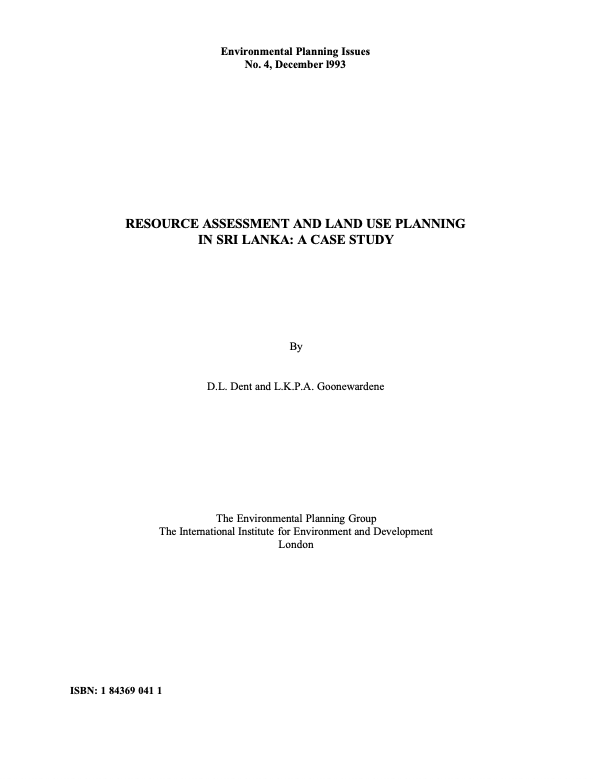Focal point
Location
Mission
Our mission is to build a fairer, more sustainable world, using evidence, action and influence in partnership with others.
Who we are
IIED is one of the world’s most influential international development and environment policy research organisations. Founded in 1971 by economist Barbara Ward, who forged the concept and cause of sustainable development, we work with partners on five continents. We build bridges between policy and practice, rich and poor communities, the government and private sector, and across diverse interest groups. We contribute to many international policy processes and frameworks, including the Intergovernmental Panel on Climate Change, the Millennium Ecosystem Assessment and the UN conventions on climate change and biological diversity.
What we do
IIED carries out research, advice and advocacy work. We carry out action research — generating robust evidence and know-how that is informed by a practical perspective acquired through hands-on research with grassroots partners — and we publish in journals and maintain high research standards. We advise government, business and development agencies, and we argue for changes in public policy. We focus on bottom-up solutions, stay open to flexible, adaptable solutions and are marked by a tradition of challenging conventional wisdom through original thinking.
Resources
Displaying 356 - 360 of 367Tenure Rights and Sustainable Development in West Africa: A Regional Overview
This workshop brought together 75 practitioners from all over Africa. This regional survey covers tenure problems in West Africa, state policy and the problem of tenure security, pilot land use management schemes, and future issues and prospects.
Pastoral land tenure and agricultural expansion: Sudan and the Horn of Africa
Examines the particular case of Sudan, but suggests the discussion is relevant to the countries of the African Horn in general and Southern Ethiopia in particular. Pastoralists in the Horn seem to experience similar, if not identical, processes resulting from land laws promulgated by the governments in the region.Concludes that the future of the pastoralist in the Horn of Africa will depend on which realistic land tenure system the government will chose.
Report on Land Tenure Insecurity on the Zambian Copperbelt
Research on land tenure insecurity on the Zambian Copperbelt in the context of the privatisation of the mines was commissioned by Oxfam, and was carried out in August 1998 and the final report written in November 1998. It contains five sections: background (including historical and legal); problems (including ‘back to the land’, conflicts in the forests, squatters, Lands Act 1995, democracy); case studies (Chingola, Kitwe, Mufulira, Solwezi); some questions; recommendations. Report has led to some very positive developments for people affected.
Economic Valuation Of Communal Rangelands In Botswana: A Case Study
Aims to estimate the annual direct use value of an average hectare of the communal rangeland in Botswana, based on an anlalysis of secondary data. Exercise incorporates the three major direft uses, both marketed and non-marketed, of rangelands: livestock, wildlife and gathering
Resource Assessment and Land Use Planning in Sri Lanka: A Case Study
ABSTRACTED FROM EXECUTIVE SUMMARY:
This review does not attempt to be comprehensive. Instead, we highlight:
-
benchmarks in the evolution of land use policies in Sri Lanka;
-
the actual contribution made to decisions about land use by systematic information on land resources.






